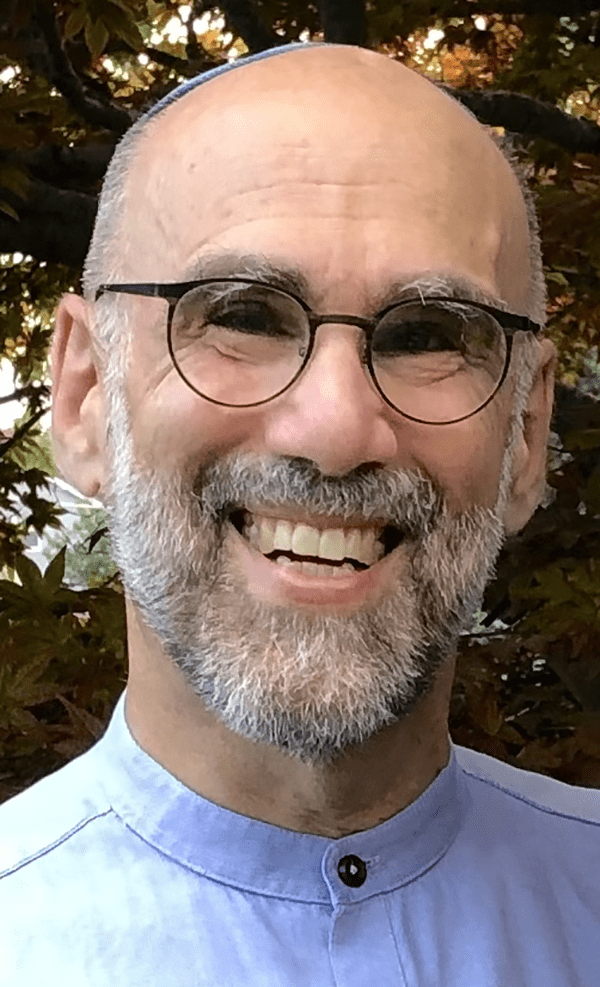Makin’ Matza!
My recent posts...
Selling Chametz
Even if you don’t keep a kosher kitchen, and/or you don’t “convert” your kitchen for Pesach, there is still spiritual value in selling your chametz: You are engaging with myriad Jews worldwide in a practice that can be traced back to Torah and, if you include a donations to “ma’ot chitin,” you are enabling those in need to more fully celebrate Pesach.
A Few Things About Pesach (With lots of links)
There is a wealth of information about Pesach (and the challenges of this year) at Exploring Judaism.org.
Omer 5785
My recent posts...
Loss and Light
Roberts defines trauma as “an experience that produces psychological injury or pain” and disaster as a severe disruption that often exceeds the capacity of the affected individual or community. He adds that disaster tends to undermine our fundamental sense of security: we are not in control!
Disaster, he writes, can lead to disorder and distress.
In today’s parashah, our patriarch Yaakov/Jacob exhibits signs of distress, even trauma. To some commentators, he is still mourning his beloved Rachel; they even see an allusion to her in the generous deathbed blessing Yaakov confers upon Yosef, her older child.
Yaakov previously expressed to Par’o/Pharaoh that his life has been too short and too full of bitterness. Indeed, Yaakov seems to be chronically bereft; yet, when he summons his sons to his deathbed-side, he gives some of them encouraging words. Mostly, it appears that Yaakov is offering his sense that they will grow into more of who they are at present. (Isn’t it the case that, as we age, we become more of ourselves, though with fewer filters?)
Yaakov has had much success: many children, wealth, a relationship with Adonai/God, top-level connections in Egypt…. Yet there is an undercurrent of loss and ruefulness, sadness, that runs through his story. After all, he exploited his brother, tricked his father, fled from home, dealt with a conniving uncle, had competitive wives and a daughter who was raped, mourned a favored son he thought was dead, lost his dearest wife, left the promised land.
That’s a lot of pain and loss.
Yosef/Joseph saved the Egyptians from death by famine, but they suffered major loss in the process: they traded their land for bread, effectively becoming indentured tenant farmers to Par’o in perpetuity. (Which will make it easier for them to be complicit in enslaving the Israelites!)
Yosef dies, at which point bnei yisrael/the children of Israel (Yaakov) lose their connection to power, leaving them vulnerable, no longer assured of controlling their own lives.
Loss.
When a loved one dies — as did our cherished member Harris Sirota so recently — we lose companionship, shared history and future, a partner in dreaming and in striving to fulfill those dreams.
On a broader level, we are inexorably approaching one million Covid-related deaths in the United States. We survivors (so far!) have lost what was normal for us. Early on, I was unwilling to accept that “this changes everything.” Now I believe it may not change everything, but it sure has changed a lot.
We’ve lost our complacency. Connections to our synagogue community have different, our ability to be in community is curtailed. Person-to-person, individual-to-group interactions keep changing, rules for distancing and masking wax and wane irregularly.
Loss.
Recently, in Kentucky and surrounding areas, there was massive loss for thousands of people in the recent tornadoes, disaster-spawning wild winds. Lives were lost, livelihoods were taken. Neighbors were killed, neighborhoods were decimated.
Loss.
So what to do? For personal loss, we spend time, we listen, we cook meals. For disaster, we send money ( to help Kentucky, click here), we volunteer as is feasible.
For Shirat Hayam, we can show up for services, for learning, for events — in-person or on Zoom. Volunteer, get involved to help create the new normal, offer suggestions, renew and strengthen our connectedness.
And we can learn Torah. The stories of our founding families and are full of life lessons, rich with nuance, and offer perennial relevance to current circumstances.
In this morning’s Torah reading, the book of Bereishit/Genesis closed with a cinematic blackout: Yosef dies, is embalmed and place in a coffin in Egypt. Screen goes black; cut to credits. Dark as it may seem, this is actually a positive ending: Yosef is confident that his coffin will eventually be taken to the land of his ancestors, so his remains in Egypt are a beacon of hope through the Israelites’ centuries of slavery.
Now, we are headed to light from darkness: for the next six months, we will enjoy increasingly more minutes of daylight!
Likewise, though for far longer than six months, I hope, we can close the disorder and distress of this COVID-darkened chapter with a new dawn.
Let’s shine!


